Worst Foods for Oedema You Should Be Aware Of
By Dr. Malavika Athavale +2 more

Get,

to manage your symptom
Get your,


4 Cr+ families
benefitted

OTP sent to 9988776655



You’ve successfully subscribed to receive
doctor-approved tips on
Whatsapp

Get ready to feel your best.

Hi There,
Download the PharmEasy App now!!


Register to Avail the Offer
Send OTPBy continuing, you agree with our Privacy Policy and Terms and Conditions

Hi There,
Sign up on PharmEasy now!!
Trusted by 4 crore+ families

OTP sent to 9988776655



You have unlocked 25% off on medicines




Code: NU25
By Dr. Malavika Athavale +2 more
Table of Contents
Oedema is a common condition that affects many people all over the world. In simple terms, oedema is defined as swelling that occurs due to fluid accumulation in the tissues, and is particularly seen in the hands, feet, ankles, arms, and legs. There are many factors that can lead to oedema, such as heart or kidney diseases, less protein in blood, lung infection and poor blood flow, which requires medical attention when severe1. Additionally, it is necessary to know that even the foods you eat can play a crucial role in avoiding and managing the oedema.
In this article, we will discuss the nature of oedema, types of food that can worsen oedema, explore healthier alternatives, and various lifestyle changes that may help in managing and avoiding this condition. Furthermore, we will also discuss oedema that occurs during pregnancy and answer some frequently asked questions.

Did you know?
Oedema occurs when fluid leaks from small blood vessels into nearby tissues, leading to the following symptoms1.
The types of oedema are based on the area of the oedema and its root cause. Some well-known types of oedema include:
A healthcare provider will examine the affected area, inquire about medical history, any trauma, onset, position change, triggering factors, and may request additional tests to determine the root cause of oedema. Some possible tests include blood tests, ultrasound exams, vein studies, or other necessary diagnostic studies8. Mild oedema usually resolves on its own, but more severe cases may require medication to manage the underlying cause1.
Avoid consuming pickled vegetables if you have edema. These foods are high in sodium due to the pickling process, which involves soaking them in a solution containing salt and vinegar. High sodium intake can worsen fluid retention and exacerbate edema symptoms. Opt for fresh vegetables instead to help manage edema more effectively
Dr. Siddharth Gupta, B.A.M.S, M.D (Ayu)
Foods that may worsen oedema include:
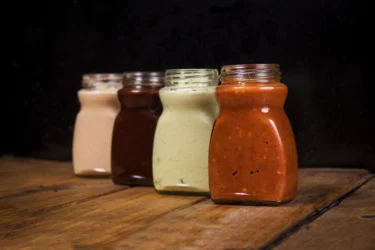
High salt intake increases the sodium content in your body, which retains more fluid and worsens oedema3. High sodium is found in unhealthy foods like fast foods, sauces, canned soups, deli meats, and bakery productions.
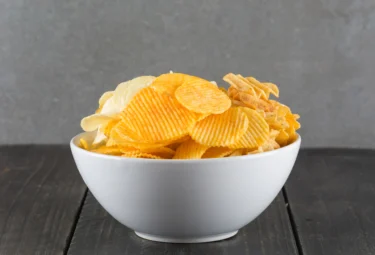
Processed foods are not only high in fat, they may also cause edema. Examples are chips, crackers, cookies, candy, and ice cream.
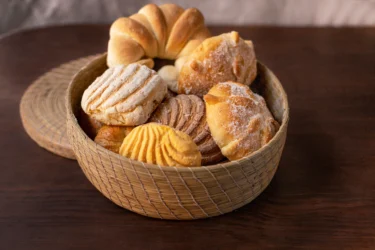
Fat-rich foods such as baked goods, meats, and cheese take longer to digest, which may lead to bloating and oedema.

Foods and drinks that cause inflammation may worsen oedema. Common examples include refined sugars, artificial sweeteners, trans fats, and alcohol2.
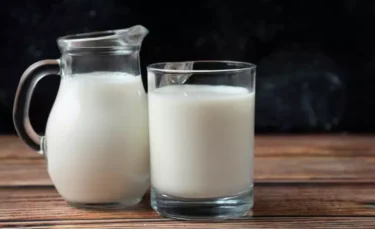
Lactose, found in dairy products like milk and ice cream, can lead to an upset stomach and bloating in people who are lactose intolerant. Probiotic-rich yogurt or lactose-free alternatives might help in such individuals.
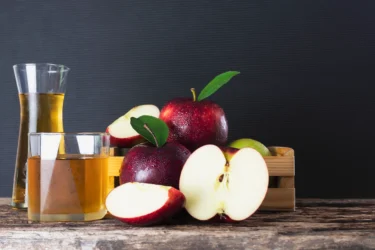
Some foods can trigger stomach upset and add to oedema. These include:
High-processed refined carbohydrates such as pasta may also increase water retention in the body. It is best to avoid these if you have edema and opt for healthier options.
Dr. Rajeev Singh, BAMS
Knowing what to eat and drink plays an important part in dealing with oedema. Making good dietary choices may help keep your health in check.
Pick nutrient-rich, low-inflammation, and low-sodium foods to manage oedema.
Drinking adequate amount of water each day to avoid fluid retention. You may add lemon, mint, or berries to your water for a refreshing twist. Overdrinking water can add to oedema.
Regular breaks throughout the day help avoid long periods of sitting or standing and raising your legs above your heart level helps drain the oedema.
Avoid tight clothes that can limit blood flow and add to oedema symptoms.
Use waist-high compression stockings to avoid fluid build-up in your limbs by promoting better blood flow with gentle pressure.
Regular workouts and a healthy weight boost circulation, and overall health, and help reduce oedema symptoms.
Also Read: What Causes Sulphur Burps and How To Stop Them
Pregnancy brings many changes to your body. One of them could be swelling or oedema. It’s crucial to know what triggers it and how to manage it10.
Swelling in pregnancy usually starts in the second term and may get worse by the third term.
Here are some self-care tips that may help you manage oedema.
Sudden severe swelling or swelling with symptoms like headaches, dizziness, or vision problems need quick medical attention. These symptoms may indicate a serious pregnancy complication like preeclampsia.
Always remember, whether you are pregnant or not, if home remedies do not help, the swelling keeps getting worse, or it is accompanied by other concerning symptoms, you should seek medical care.
Also Read: Why Should You Drink Water in the Morning Before Brushing?
In summary, understanding and managing the impact of oedema on your body is crucial for overall health and well-being. Be aware of the types and causes of oedema and identify the foods and drinks that can aggravate the condition. Focus on healthier alternatives and adopt beneficial lifestyle changes to keep oedema at bay. Moreover, it’s essential to recognise the triggers and warning signs of oedema and know when to seek medical guidance. Stay proactive and make informed decisions to lead a healthy, active life.
Processed, high-salt, high-fat, high-sugar foods and certain dairy products can make oedema worse.
Regular exercise, weight management, and balanced diet can help reduce the oedema9.
Yes, hot and cold compression and massaging can help in reducing oedema.
Avoid high-sodium foods, processed foods, unhealthy fats, and high-sugar beverages if you have fluid retention
Limit high-sodium foods, processed foods, unhealthy fats, and high-sugar beverages that can exacerbate swelling in the feet.
Disclaimer: The information provided here is for educational/awareness purposes only and is not intended to be a substitute for medical treatment by a healthcare professional and should not be relied upon to diagnose or treat any medical condition. The reader should consult a registered medical practitioner to determine the appropriateness of the information and before consuming any medication. PharmEasy does not provide any guarantee or warranty (express or implied) regarding the accuracy, adequacy, completeness, legality, reliability or usefulness of the information; and disclaims any liability arising thereof.
Links and product recommendations in the information provided here are advertisements of third-party products available on the website. PharmEasy does not make any representation on the accuracy or suitability of such products/services. Advertisements do not influence the editorial decisions or content. The information in this blog is subject to change without notice. The authors and administrators reserve the right to modify, add, or remove content without notification. It is your responsibility to review this disclaimer regularly for any changes
Comments

Leave your comment...
You may also like
Comments